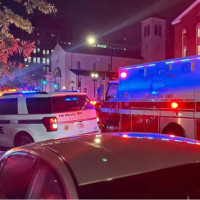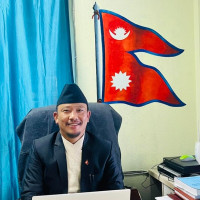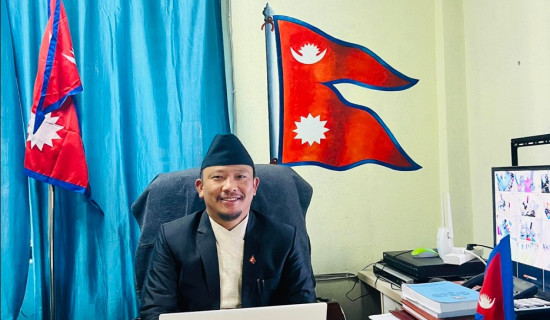- Thursday, 22 May 2025
National Photography Day marked
Security training stressed for photojournalists
By A Staff Reporter,Kathmandu, Apr. 27: Senior photojournalists, stakeholders and others have stressed the need for security training and ensuring the safety equipment for photo journalists deployed in the front lines of war and conflict zones.
Participants of a workshop on 'Photojournalism and Journalist Safety in Nepal' organised on the occasion of the National Photojournalism Day in Kathmandu on Saturday said that photojournalists were being targeted by both security personnel and agitating groups.
In the workshop organised by the Photography Department of the Gorkhapatra Corporation, senior photojournalist Shyam Shrestha said, “I was badly beaten up by security officials while I was capturing a photograph in Thankot."
He said that personal sense and professional tricks could help journalists remain safe in conflict zones.
Saying that a photojournalist should protect her/his life first, Shrestha stressed for a regular security training to the frontline journalists. He also said safety equipment like helmets, safety gear, and tear-gas masks needs to be provided to the journalists while deploying them in conflict zones.
He recalled the sad demise of Suresh Rajak, a photo journalist in Tinkune incident of March 28, and said journalists cannot protect themselves if they are not trained well.
Senior photojournalist and former general manager of Gorkhapatra Corporation Gopal Chitrakar said that journalists need to be extra attentive while working in conflict zones and during violent demonstrations.
Citing an example of a student protest in Bagbazaar area years back, he said one could not be safe if he was not attentive to the hostile situation. Chitrakar further said that social media were spreading disinformation, resulting in the loss of trust, and thus mainstream media should act more responsibly.
Similarly, Prakash Mathema, chief photojournalist of the Agence France Presse (AFP) in Nepal, said that training was the essence for the front liners. "Suresh could have survived if he were given a security training," he said.
He said either the media houses or the government should provide security equipment to journalists to protect their lives.
First woman photojournalist Usha Titikshu said that protecting the photographs was the need of the hour.
Stating that history of photojournalism was in uneasy situation, she urged Gorkhapatra to own her collections too. She was also honoured on the occasion. "I am ready to provide my collection to the corporation, please, preserve the assets," she added.
Bishnu Subedi, Executive Chairman of Gorkhapatra Corporation congratulated photo journalists for their contribution during the time. He also expressed his committed to archiving historic photographs.
General manager Lal Bahadur Airi and representatives from security bodies also spoke on the occasion.
















